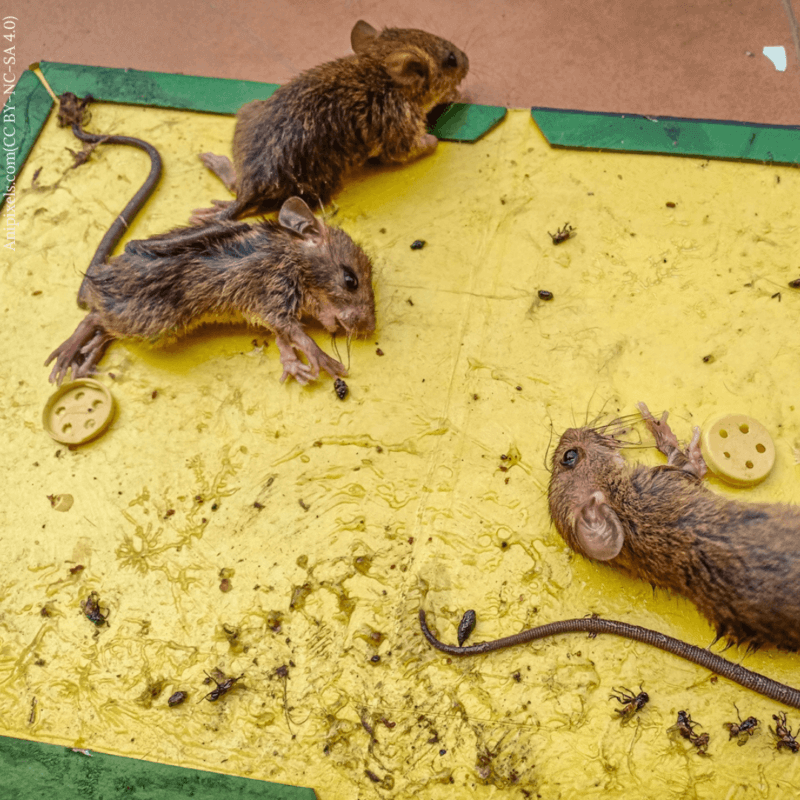Madhya Pradesh Stands Up for Rodents, Bans Cruel Glue Traps Following PETA India Appeal
Following an appeal from PETA India to ban deadly glue traps used for rodent control, the director of animal husbandry and dairying of the government of Madhya Pradesh has instructed the joint director of the Department of Animal Husbandry and Dairying and the deputy director cum member secretaries of the societies for the prevention of cruelty to animals of all districts to comply with Animal Welfare Board of India (AWBI) advisories. The instruction advises a ban on the manufacture, sale, and use of glue traps and adherence to this direction.
In its appeal, PETA India had requested that the state government take immediate steps to implement circulars issued by the AWBI advising that glue traps be prohibited. Such circulars prohibiting the manufacture, sale, and use of glue traps have been previously issued by the governments of Chhattisgarh, Goa, Himachal Pradesh, Karnataka, Meghalaya, Mizoram, Sikkim, Tamil Nadu, and Telangana.
The use of glue traps, which cause unnecessary suffering to animals, is a punishable offence under Section 11 of The Prevention of Cruelty to Animals Act, 1960. Usually made of plastic trays or sheets of cardboard covered with strong glue, these traps are indiscriminate killers, often catching non-target animals, including birds, squirrels, reptiles, and frogs. This puts their use also in violation of the Wild Life (Protection) Act, 1972, which prohibits the “hunting” of protected indigenous species. Mice, rats, and other animals caught in these traps can die of hunger, dehydration, or exposure after days of prolonged suffering. Others may suffocate when their noses and mouths become stuck in the glue, while some even chew through their legs in a desperate bid for freedom and die from blood loss. Those found alive may be thrown away along with the trap or may face an even more traumatic death, such as by bludgeoning or drowning.
The best way to control rodent populations is to make the area unattractive or inaccessible to them: eliminate food sources by keeping surfaces and floors clean and storing food in chew-proof containers, sealing trash cans, and using ammonia-soaked cotton balls or rags to drive rodents away (they hate the smell). After giving them a few days to leave, seal entry points using foam sealant, steel wool, hardware cloth, or metal flashing. Rodents can also be removed using humane cage traps but must be released where they will find adequate food, water, and shelter to help them survive.
In 2022, following an appeal from PETA India, the Madhya Pradesh government issued a circular prohibiting the use of severely restrictive gestation and farrowing crates in pig farming.







